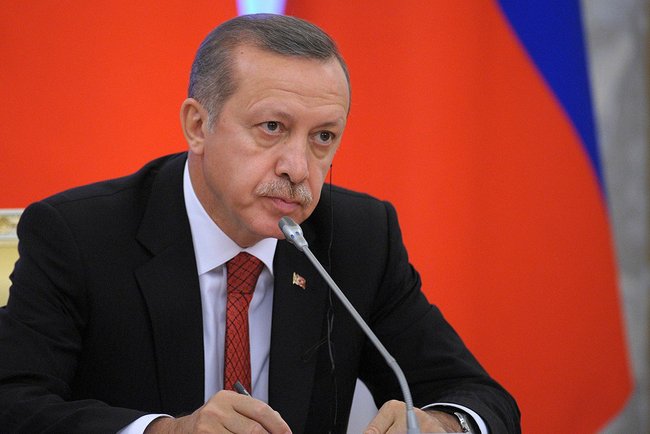
On May 4th, the European Commission (EC) gave its blessing for a deal that would allow visa-free travel within Europe’s passport-free Schengen area for Turkish citizens. This is big news for Turkey, which has been trying (ostensibly) to deepen its links with the EU for many years. However, this liberalization comes at a steep price. In return for moving freely within the passport-free Schengen Area, Turkey will take back the migrants that have made their way to Europe via its own borders and the Greek islands.
The EC’s approval is conditional though on Turkey meeting 72 wide-ranging criteria that will allegedly bring its workings more in line with European values. These include revising terrorism laws, adopting stricter data protection rules, increasing transparency on party funding, introducing more rigorous financial disclosure requirements for both political candidates and parties and dropping discriminatory measures against the citizens of Cyprus.
The deputy head of the European Commission, Frans Timmermans, has stated that the EU executive will not falter on enforcing the 72 conditions on Turkey, saying “If [Turkey] want to come close to the European Union so badly, let them prove that they can…The distance between us and Turkey is not decreasing, it is increasing, because of human rights, the media and what is happening in civil society.” Turkey is, in essence, being asked to stop its alarming slide into authoritarianism and instead become more Western.
Unfortunately, there is scant evidence that Ankara will comply—look no further than to toxic mix of blackmail, intimidation and threats used by Turkish President Recep Tayyip Erdogan to coax Brussels into signing the deal and to the way Prime Minister Ahmet Davutoglu was forced out of his post on May 5th. What’s more, as a direct consequence of this agreement, Turkey has even fewer incentives to change its ways, as Ankara holds the trump card in reducing Europe’s escalating refugee crisis. Not to mention that even if the 72 laws are passed, they will most likely by toothless or selectively enforced.
This is not even the first time Turkey has promised to help solve the refugee crisis in return for a little sweetener of its choosing. In November, it extracted some €3 billion from the EU to help it deal with the refugees within its borders. Ankara has manifested a habit of eagerly seeking concessions and funding from the EU, but being notably less keen on keeping its own side of the bargains.
Despite this, concessions just keep on coming, partly because of Germany’s embattled chancellor Angela Merkel. Her handling of the refugee crisis has led to 48% of voters saying that they do not want her to continue as chancellor after the 2017 elections. Merkel, perhaps more than other leaders within the EU needs to find a solution and is sweeping under the rug the increasingly Ottoman ways of Turkey’s social contract.
Indeed, Human Rights Watch has declared that after monitoring the human rights situation in Turkey for over three decades, “it has most recently traced the sharp deterioration in the rights environment in the context of the breakdown of the Kurdish peace process and escalating violence in the southeast, and a crackdown on media and political opponents of President Erdogan and the Justice and Development Party (AKP) government.”
And nowhere is this erosion of democracy clearer than in Turkey’s attitude towards dissidents in the media. In March, police officers bearing tear gas and water cannon raided the offices of the Daily Zaman, Turkey’s largest newspaper following a court-ordered takeover. The new trustee administration of the newspaper promptly fired some 50 journalists and ensured that the newspaper’s editorial stance shifts from critical analysis to undiscriminating cheerleading for the establishment.
And it is not just journalists criticizing from within that Erdogan wishes to take task. The Turkish government has recently complained to Germany’s ambassador after seeing a music video aired on a satirical German TV show which interspersed some of Erdogan’s less flattering public moments with jokes about women now having ‘equal rights to be beaten by the police’ and footage of crackdowns on protesters led by this ‘big boss from Bosphorus.’
Indeed, this short clip has attracted so much ire from the Turkish government that it has formally asked Germany to prosecute the person responsible on the grounds that they have insulted a representative of a foreign government, using an arcane section of Germany’s criminal law. Similarly, a Dutch journalist recently found herself detained in custody after—perhaps ironically—publishing a column criticizing the Turkish government’s stealthy removal of freedom of expression.
After years of reluctance, this deal between the EU and Turkey—something commentator Wolfgang Münchau described as “as sordid as anything I have seen in modern European politics”—is only being pushed through now, at a time when the country is going backwards in democratic terms, for one reason: The migrant crisis is threatening the jobs of most European leaders. However, if they go through with this deal, they’ll lose the moral high ground and quite possibly hasten the end of their own mandate too.